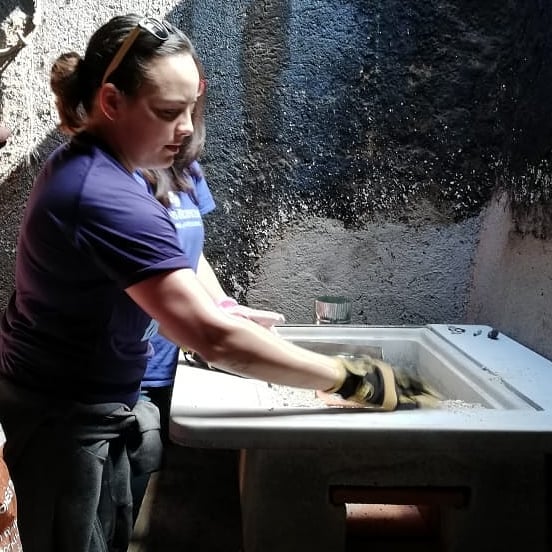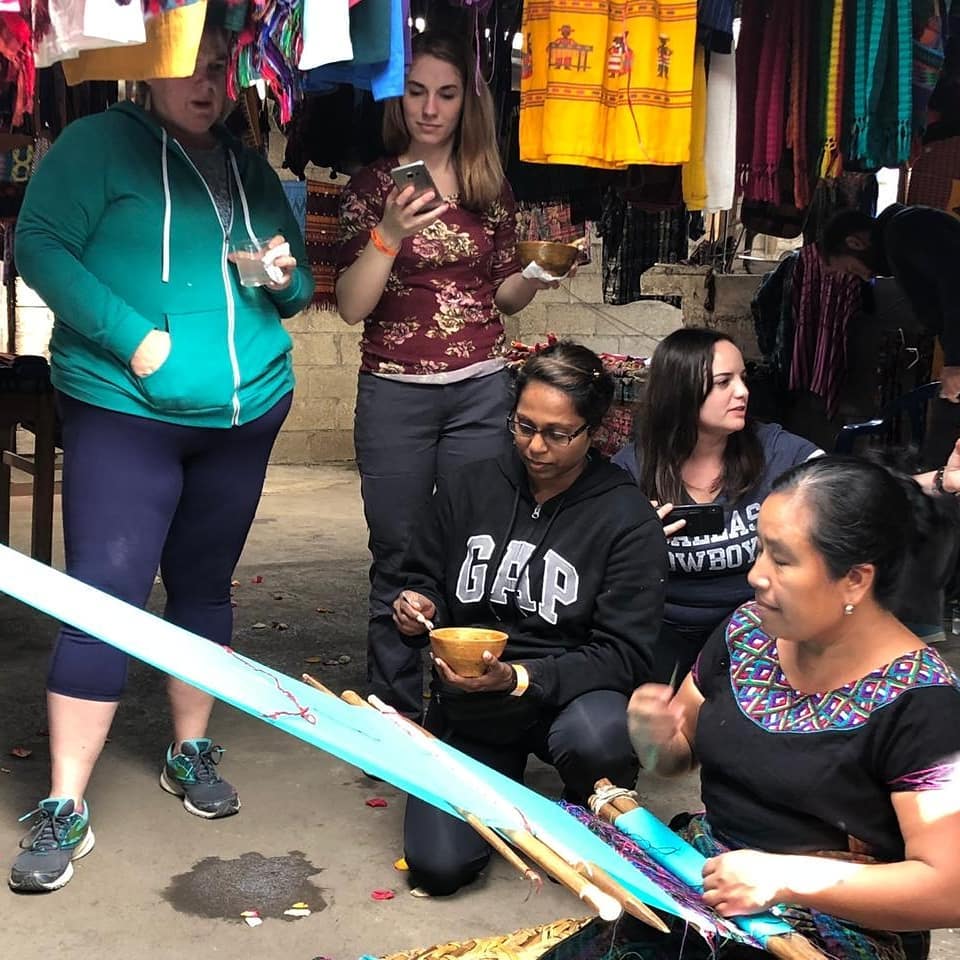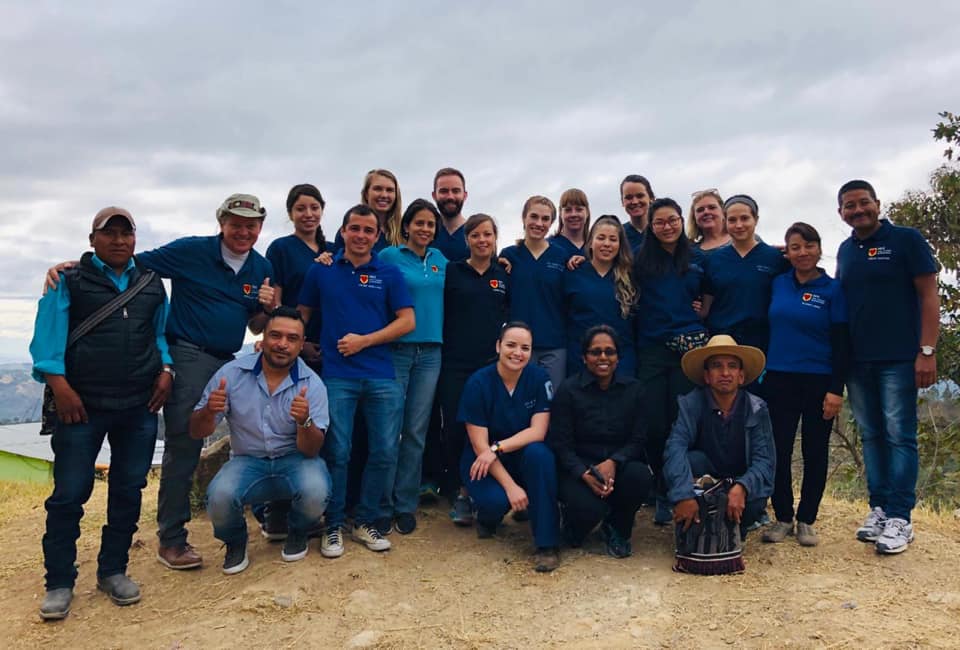“Leaving Guatemala is bittersweet,” writes Cuiyan Yu.
From January 5-11, 2019, she and nine other students in the MSN (Entry Into Nursing) program, Denise Saenz, Jessica Cooper, Jodie Pelusi, Katherine McNabb, Lizbeth Lopez, Laura Moro, Melissa Spahr, Braden Adams, and Rebekka Lerna traveled with Dr. Vinciya Pandian and Dr. Martha Abshire on a short-term global health mission to Guatemala.
They felt welcome, and awed, from the beginning. “We spent countless hours traveling, from the road, to the airport, on the flight… but it was all forgotten once we stepped off the plane and Nursing Heart, Inc. welcomed us with smiling faces and open arms,” writes Lizbeth Lopez. “Later, in Pacoxpón the health committee showed us around the town; it was surreal, surrounded by mountains, trees, and volcanoes.”
They knew why they were there. They knew they wanted to help. Yet many wondered, “what meaningful impact can we make in a week?”
“With such a short amount of time, I was worried about doing more harm than good for Pacoxpón,” Cuiyan continues. “Moral dilemmas ran through my head about invading their space, disrupting their families, suggesting interventions beyond our means, and worst of all, inserting ourselves to offer help without fully understanding what the community needed.”
Yet Nursing Heart, Inc. had it covered, and even Returned Peace Corps Volunteers were impressed by the careful planning and thought-out interventions that provided health services while staying within the students’ means.

“We installed stoves for nine families and conducted health assessment surveys over the course of two days with 65 families,” writes Cuiyan. “Rather than inserting ourselves in places we didn’t understand, we used the surveys to sit back, listen, and assess what we could do.”
“Many families in Guatemala are living in poverty, so they have open fires in the confines of their homes where they make all of their food,” writes Denise Saenz. The students noticed this early; “Smells of handmade corn tortillas toasting on comals over wood-burning fires danced in our noses when residents invited us into their homes.”
The food was delicious, but cooking was dangerous for the household. Jessica Cooper adds, “The Chapina stoves reduce smoke inhalation in the home, decrease heat exposure and burns sustained by open fires, and help conservation; they reduce the amount of wood families need to burn.” The new stoves were enclosed and a more efficient heating source.
The work was challenging. Denise continues, “Our day involved trekking up large hills behind families who effortlessly lead the way, collaborating with them to find an ideal placement for the stove, and working together to assemble the stoves to each family’s satisfaction.”
“For the surveys we formed teams that included two students, nursing heart staff, and most importantly a community member from Pacoxpón,” Rebekka Lerna writes. The survey, and the structure of it were an important element in making the week-long trip sustainable.
Nursing Heart’s ongoing relationship with health workers inside the community meant they were prepared with the survey for us to administer when we arrived. “As a result, we could seamlessly gather this information into a report that we shared with the community health workers. They can now use it to plan and implement projects to improve Pacoxpón citizens’ health,” writes Jodie Pelusi.
Beyond the work, the trip as a whole left the students’ worldview forever changed.

“Poverty abounds in Guatemala, and very little of the country’s income is dedicated to health care and health resources, yet the priorities and kindness of the people we met were truly humbling,” writes Jessica Cooper. “During our survey, families welcomed us into their homes and openly shared their health struggles and interests. We learned that they want to improve their water systems, need access to medicine, and need dental care.”
Lizbeth Lopez sums it up: “I was only in Guatemala for a short week, but I learned a lot from the people. I learned how to be kinder, more compassionate, how to care for the environment and implement small changes. I learned about advocating for individuals and the community and reaching out to resources for help even when there doesn’t seem to be a solution.”
Learn more:
